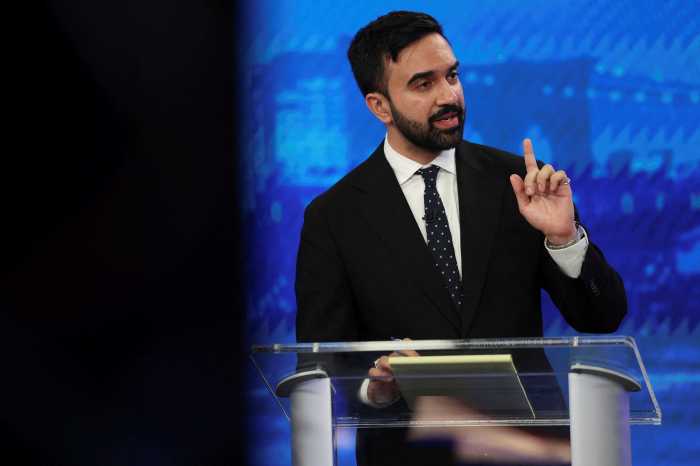By Philip Newman
A Queens assemblywoman cast a vote that derailed Metropolitan Transportation Authority plans to spend $231 million on commuter rail cars, a transaction protested by New York City straphangers and Mayor Bloomberg.
Assemblywoman Catherine Nolan (D-Ridgewood), a member of the MTA Capital Program Review Board, voted in opposition to an amendment giving the MTA an additional $1.4 billion and sidelining purchase of new cars for the Metro-North Commuter Railroad.
It also halted several other transit projects in Lower Manhattan.
The furor over the suburban rail cars had mounted last week as City Councilman John Liu (D-Flushing) held a hearing of his Transportation Committee over what, if anything, was being done toward an MTA takeover of faltering private bus lines.
“The subway and bus riders of Queens and New York City in general should feel glad we have an Assembly member like Cathy Nolan looking out for them,” Liu said of Nolan’s veto: “It should serve as a reminder to the MTA that it cannot always go off on its own then shrug its shoulders without accountability.”
Bloomberg had reacted with criticism of the MTA at the announcement that it planned to purchase hundreds of new cars for the railroad, which serves suburban commuters in Westchester, Putnam and Dutchess counties.
“I think the MTA has sort of forgotten they were created to be a regional transportation system and the center of the region is right here in the city,” Bloomberg said on his weekly radio broadcast.
Bloomberg’s reaction to the vote in Albany was different.
“I am pleased that the Assembly has stood up for the people of New York City to help us get our fair share from the MTA,” Bloomberg said. “Transportation for city residents must be the agency’s first priority and we look forward to working with them to make sure every New Yorker can depend on reliable mass transit service.”
On the contrary, MTA Chairman Peter Kalikow said, “I am distressed by the Assembly’s veto of the MTA’s Capital Plan amendment. It is particularly disturbing that this veto was issued without explanation after extensive briefings and information were provided over the last month. It is unfortunate that despite our efforts, critical capital needs, which would allow us to enhance our transportation system, cannot be advanced.”
Bloomberg has withdrawn New York City’s $150 million annual subsidy for the seven private bus lines and persistent but unofficial reports have maintained that if the MTA is to take over operation of the buses, the city must provide some money.
Liu told the hearing he convened that the legal mandate that the MTA must maintain public transit in all respects in New York “is clear.”
Liu, quoted from the New York State Public Authorities law, which created and empowers the MTA.
“The MTA is to develop and implement a unified mass transit policy for the region,” Liu said. “Has the MTA fulfilled this mandate? I submit that it has not.”
Operators of the seven bus lines have long complained of having to operate with old buses, breakdowns, and uncertainty over the future. Bus riders have told of longer waits, worsening crowding and diminished service and the specter of an end of bus service altogether.
The buses are particularly vital in much of eastern Queens, where there are no subway lines.
The bus contract expired last New Year’s Eve but was extended until June 30.
All votes involving the MTA Capital Program Review Committee, must be unanimous and all members have veto power.
Last year, Nolan, citing lack of information at first, vetoed, but then relented and approved a nearly $600 million MTA security plan.
Reach contributing writer Philip Newman by e-mail at news@timesledger.com or call 229-0300, Ext. 136.




































